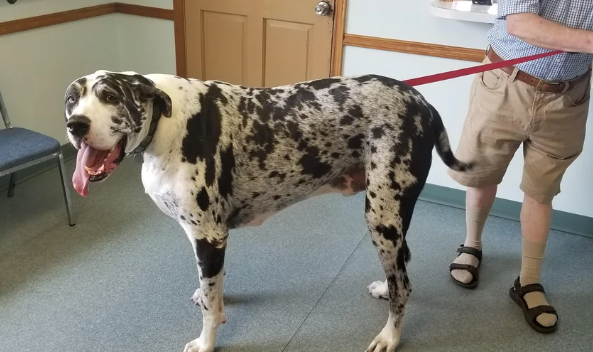Understanding Obese Great Danes: Health Implications and Solutions
Obesity among pet dogs, especially breeds like Great Danes, is a growing concern for pet owners. As these gentle giants are known for their size and affectionate nature, maintaining their health through proper weight management is crucial. Being informed about obesity in Great Danes can help owners ensure longer, happier lives for their furry friends.
- Recognizing Obesity in Great Danes
Identifying obesity in Great Danes can be challenging due to their large size and muscle mass. However, owners should look for specific signs, such as an inability to feel the dog’s ribs easily, a noticeable lack of a waist, and difficulty in performing routine activities like walking or climbing stairs. Regular weight checks against breed standards are crucial for monitoring health and ensuring your Great Dane maintains a healthy weight.
- Causes of Obesity in Great Danes
Several factors contribute to obesity in Great Danes, including overfeeding, lack of exercise, and underlying health conditions. As a giant breed, Great Danes require an appropriate diet tailored to their age and activity level. Owners often mistakenly overestimate their dog’s caloric needs due to their size, leading to excessive weight gain. Additionally, sedentary lifestyles, especially in urban settings, can hinder physical activity, contributing further to obesity.
- Strategies for Managing Weight in Great Danes
Managing an obese Great Dane involves a multifaceted approach. A consult with a veterinarian is essential for developing a tailored diet plan that meets nutritional needs while promoting weight loss. Incorporating regular exercise, such as daily walks or playtime, is important to help burn calories and maintain muscle mass. Gradual adjustments in diet and activity level can lead to sustainable weight loss, improving both health and quality of life for your Great Dane.
In conclusion, being proactive about your Great Dane’s weight can significantly impact their overall well-being. Understanding the signs of obesity, the factors that contribute to it, and effective management strategies will help ensure your beloved pet leads a healthy, active life. If you suspect your Great Dane is overweight, consider consulting with a veterinarian to set them on the path to better health.
